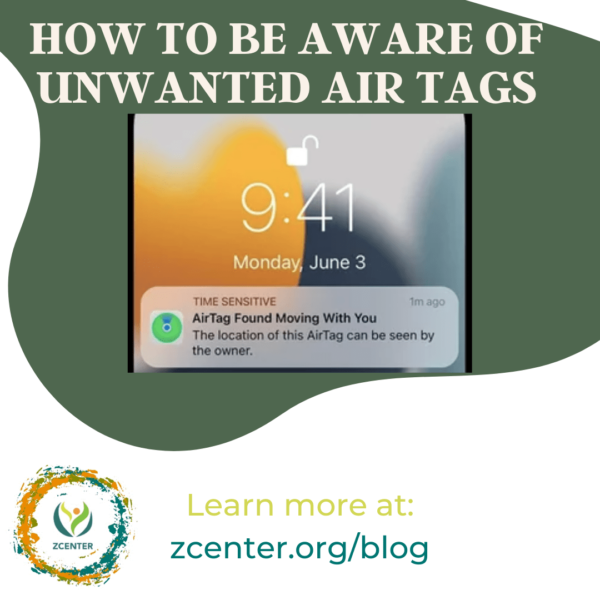As an advocate for the rights of sexual assault and sexual harassment survivors, I wanted to share some important information on AirTags and how to be aware of this device.
First, let’s look at how the AirTag works. AirTag sends out a secure Bluetooth signal that can be detected by nearby devices in the Find My network. AirTags were created to help find personal objects such as keys or bags. These devices send the location of your AirTag to iCloud then you can go to the Find My app and see it on a map.
While technology continues to advance, it is important to be safe. Reports have been made that the Air Tags can also be used to track people unsuspectingly. It can be slipped into a purse or attached to a car, raising questions about privacy and safety. Apple states that it has incorporated features in the AirTags to discourage unwanted tracking. Some of these features include audible alarms and messages about nearby tags that pop up on iPhones. A notification pop-up will state “AirTag found moving with you.” The Apple site says to follow the on-screen instructions to disable the AirTags. If you feel your safety is at risk, please contact your local law enforcement. It is also encouraged to look through your belongings to try and find it. In order to disable the AirTag to stop sharing your location you can twist counterclockwise on the back of the device by the Apple logo and take the battery out. The person tracking on the other end will no longer be able to see your location.
Please see the following resources that provide further information.
Apple AirTags: How to Protect Yourself From Being Tracked, cnet.com
AirTags: Apple’s Item Trackers – Everything We Know, macrumors.com
Written by Denisse Ochoa, BA Sociology Candidate at University of Wisconsin-Parkside, ZCenter Outreach Intern
ZCenter aims to end sexual violence, mobilize and educate the public, and support survivors of sexual assault. Our blog addresses issues related to ending oppression and violence, since all oppression and violence are intersectional with sexual violence. All ZCenter blog posts are written by state certified staff, interns, and volunteers. For questions on authorship or content, please email info@zcenter.org.

